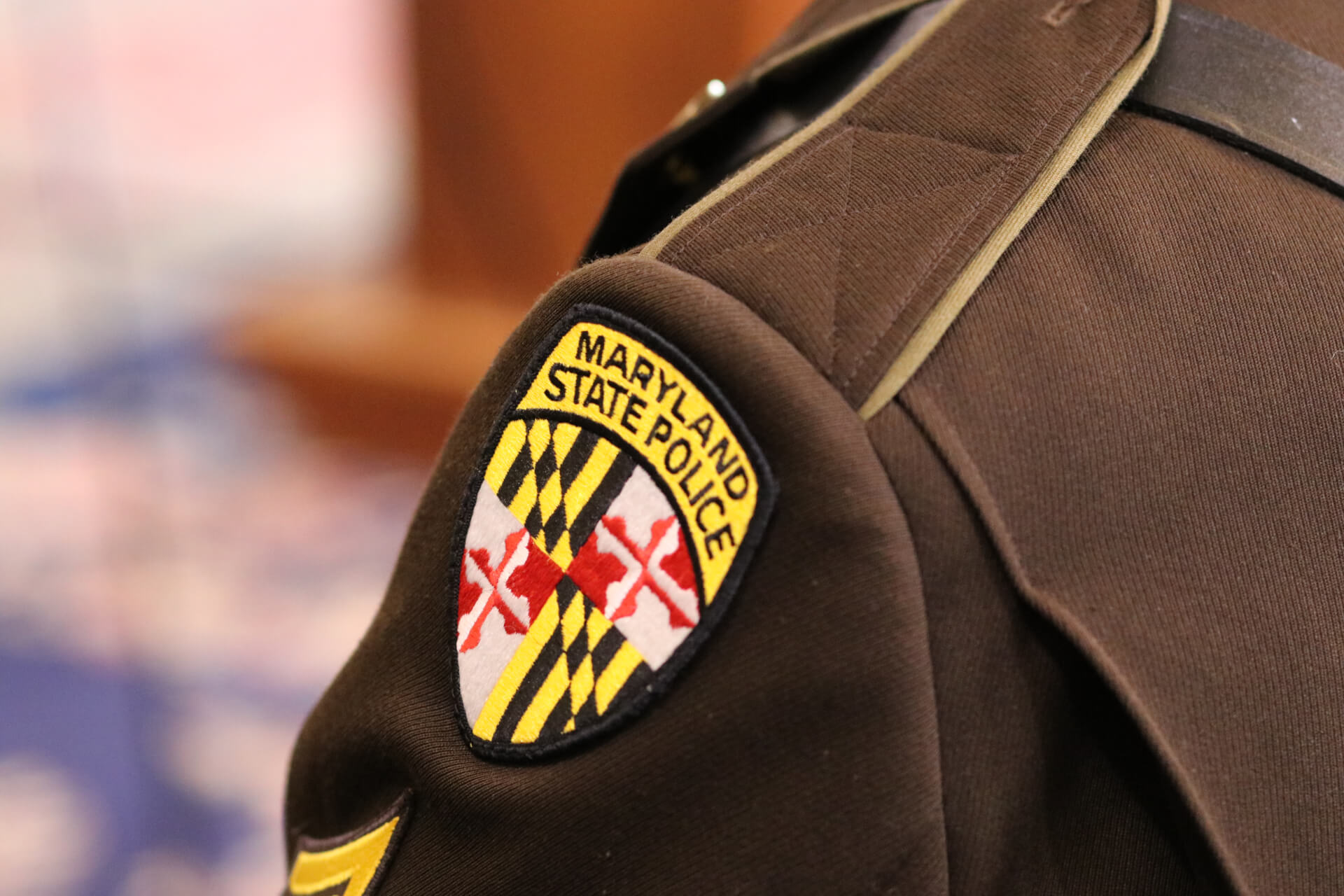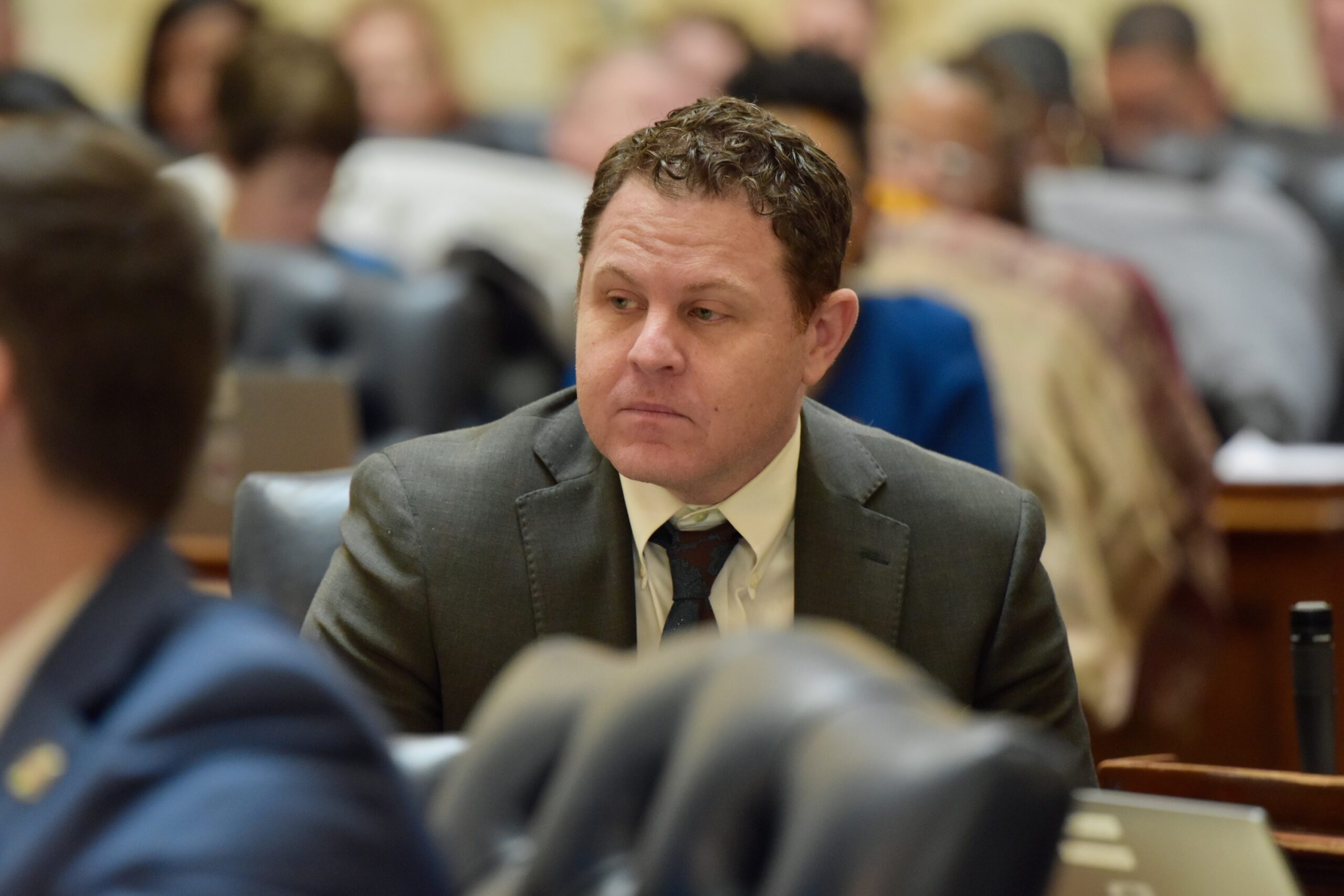Prosecutors, Police Chiefs Wary of Giving Up Power on Police Misconduct

A handful of Maryland State’s Attorneys briefed the House Workgroup to Address Police Reform and Accountability Thursday afternoon, sharing what productive police reform would look like for them.
“We feel it’s our obligation as elected officials charged with ensuring equal, fair and just enforcement of our laws that we speak out and offer sensible, sustainable reforms that address the issues that undermine members of our community’s faith in criminal justice institutions that are designed to protect and serve them,” Howard County State’s Attorney Richard Gibson (D) told the workgroup.
Gibson represented the State’s Attorneys Association as chair of the Committee for Prosecutorial and Police reforms.
In prosecutors’ laundry lists, there were a few crossover suggestions, including the creation of a police misconduct database, not unlike legislation proposed by Sen. Charles E. Sydnor III (D-Baltimore County).
Sydnor’s bill is set to be heard at a rare interim bill hearing next week.
State prosecutors are also open, not to defunding, but to “reimagining” the allocation of taxpayer dollars to expand necessary services that would take some responsibility away from police.
“We do appreciate the role police play,” said Gibson, “and if they were actually defunded, it would…have a disastrous effect.”
John McCarthy (D), Montgomery County’s State’s Attorney, said that, especially in the case of mental health crises, officers need better support. He said rethinking how resources are deployed to expand community services would relieve a lot of pressure.
“If you talk to people who are police officers — if you said to them, ‘Guess what? We are never going to make you respond to another incident with a mentally ill individual. We’re going to send somebody else,’ they would kiss you on the mouth [and] say ‘Thank you very much, I don’t want to go there,” McCarthy told the workgroup.
“I think we’re all in favor of reimagining,” he said. “I know I am.”
Notably, all four state’s attorneys stood firm that police departments should not have the authority to conduct their own use of lethal force investigations.
“Police should not be policing itself,” said Baltimore City State’s Attorney Marilyn J. Mosby (D). “It presents a natural conflict of interest and I just have to be candid with you all: A prosecution is only as good as the investigation on which it is built.”
Mosby gave lawmakers a list of inadequacies she has found within Baltimore’s police department, from delayed or unexecuted warrants to officers seemingly intentionally running out the clock to exceed the statute of limitations.
Mosby recommended that all state prosecutors should be granted the authority to investigate use of deadly force allegations “from the start to the completion of the case.” And lawmakers should reconsider how law enforcement agencies conduct their internal affairs investigations, she said.
Currently, police internal investigations units are in charge of investigating fellow officers. Mosby said this is a major conflict of interest and “not fit for purpose.”
Police chiefs and sheriffs have pleaded their case before the workgroup to continue conducting their own internal investigations.
At a virtual briefing in August when law enforcement leadership was questioned about the necessity of maintaining the Law Enforcement Officers’ Bill of Rights, Charles County Sheriff Troy Berry (D) expressed discomfort about not holding the reins during a misconduct investigation in his department.
“As a sheriff, I’m held accountable for what criminally happens in our community and I think … it would be very difficult for me to sit idly by and let the outside organization do the investigation,” he said.
Elected officials that testified before the workgroup on Thursday also had qualms about removing their hand from misconduct investigations.
Prince George’s County State’s Attorney Aisha N. Braveboy (D) said that the State’s Attorneys Association is opposed to independent agencies “usurping” state prosecutors’ constitutional obligation to litigate use of force cases. She noted that there are already measures to pass cases to other jurisdictions if a conflict of interest arises.
“Local state’s attorneys are elected by the residents of their jurisdictions,” Braveboy said. “Essentially, we are responsible for everyone in our community and everyone’s actions, and so we don’t believe that in any way the local state’s attorney is not equipped to handle these types of prosecutions.”
Del. Vanessa E. Atterbeary (D-Howard), the chair of the House workgroup, said she sees members of the public asking for both independent investigations and prosecutions, and that law enforcement agencies and state prosecutors often work hand-in-hand.
“I think the customs and norms and the practices that Black and Brown people have been experiencing, that is the problem and that’s what we need to get away from in policing and in prosecution to ensure uniformity in prosecutions,” she said.
Atterbeary floated the idea of having the office of Attorney General Brian E. Frosh (D) prosecute misconduct investigations.
State’s Attorneys argued that, because they are elected locally, they hold a greater responsibility and more accountability to their constituents than Frosh would.
Mosby called the notion of giving these investigations over to Frosh’s office a “bad idea.”
“The people of Baltimore City didn’t elect Brian Frosh to be the state’s attorney of Baltimore City,” she said. “They elected Marilyn Mosby twice.”




 Creative Commons Attribution
Creative Commons Attribution